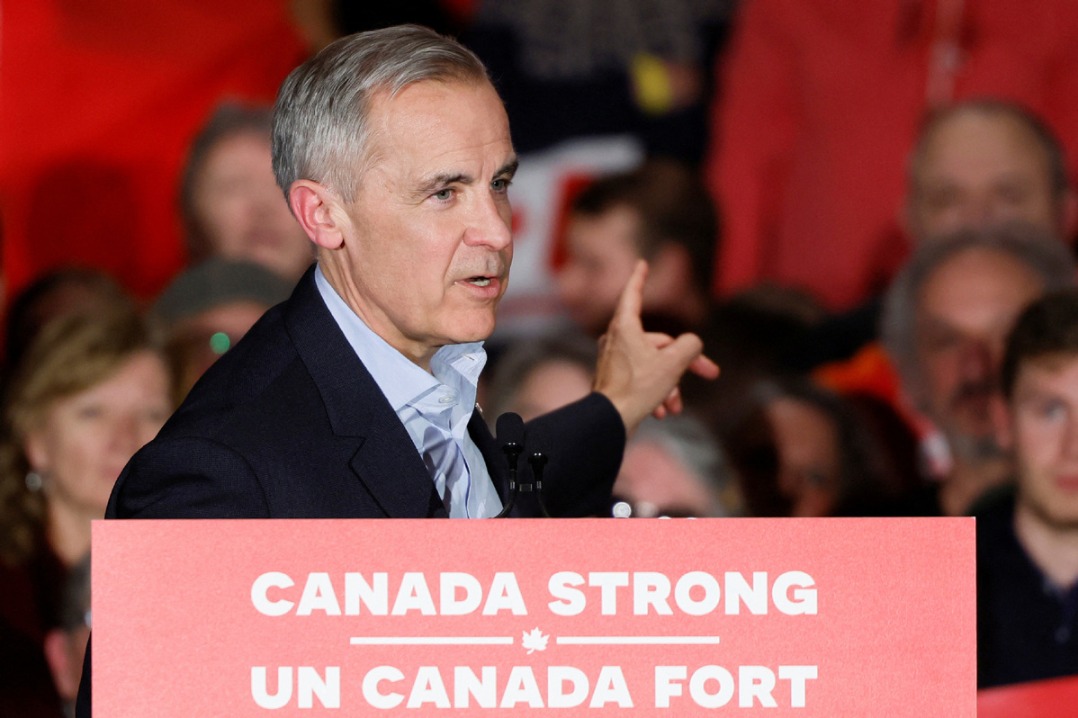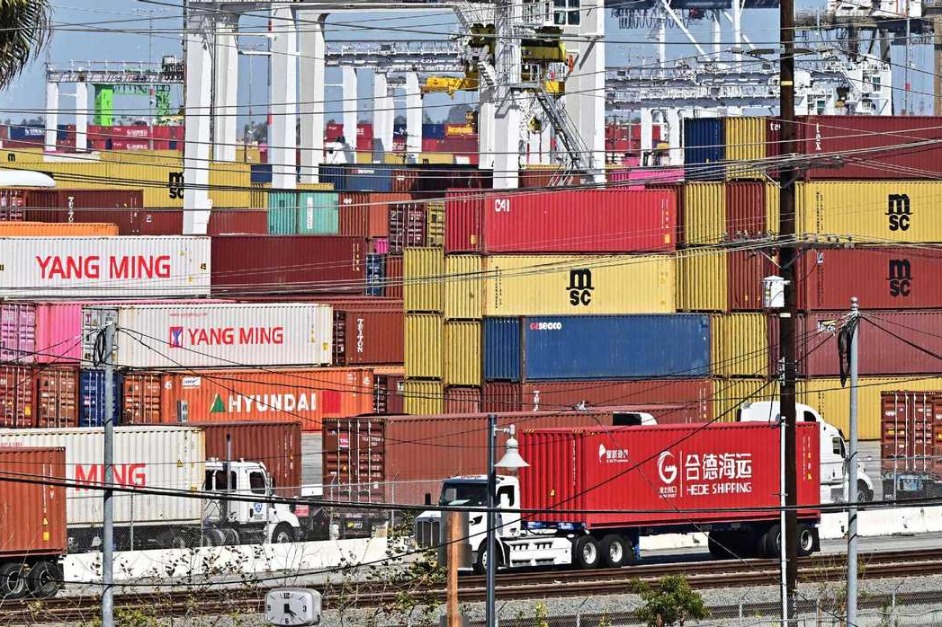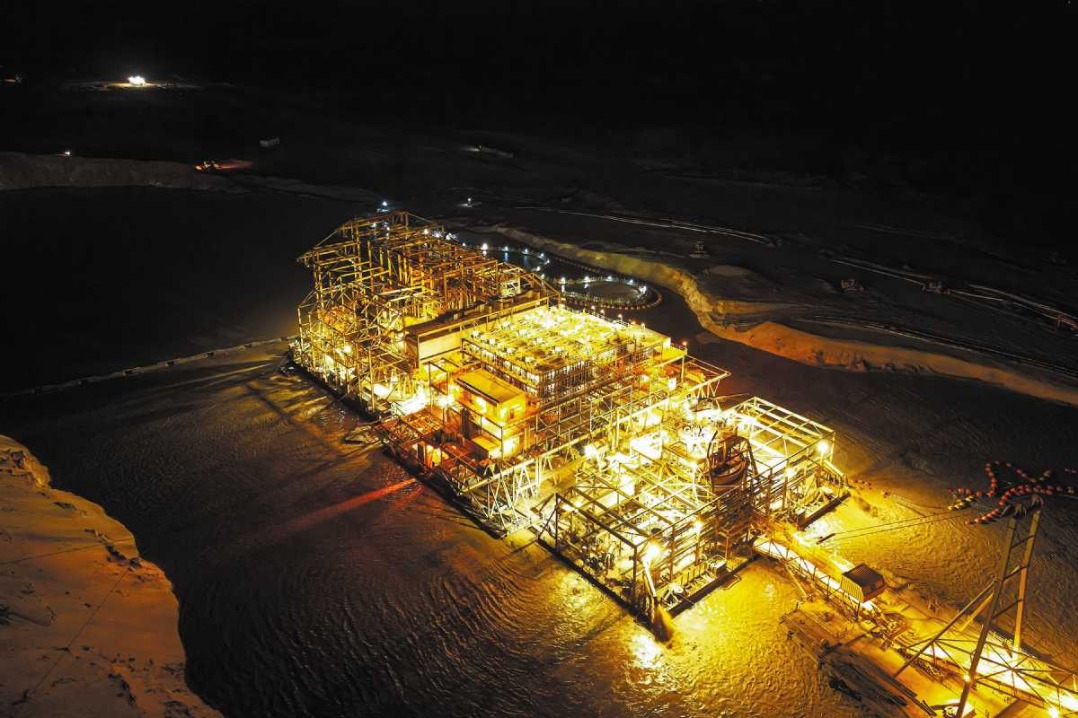Revived US tariffs spark chilling effect
Long-term risks loom for Middle East over lower oil prices, high interest rates

As the United States imposes tariffs on many countries, even some of its closest allies, businesses in the Middle East are bracing for a chilling effect — a triple threat of depressed oil prices, non-oil export tariffs and high interest rates.
While the measures primarily target North America, the European Union and China, analysts say economies in the Middle East and North Africa remain vulnerable to secondary effects.
This month Goldman Sachs cut its 2025 GDP forecast for the US from 2.4 percent to 1.7 percent, citing uncertainty over tariffs.
Nader Habibi, a professor of economics of the Middle East at Brandeis University in Massachusetts, said: "We are moving toward the risk of trade wars, and that in itself increases the risk of a global recession. As we've seen in the past, global recessions tend to have adverse effects on Gulf Cooperation Council economies because they can bring down the price of oil."
In the short term Middle Eastern economies could benefit from tariff-led trade conflict between the US and its major partners, but they face longer-term risks of lower oil prices, tariffs on their own non-oil exports and high interest rates, said Sarah McEvitt, an analyst with the global business consultancy Alvarez & Marsal in the Middle East.
The US is an important trading partner for many regional countries, she said. "As higher tariffs and stricter trade regulations loom, businesses in the region must prepare for potential impacts."
The US now imports about 70 percent of its aluminum supply, with about 60 percent coming from Canada, tariff-free. The Gulf region is the second-largest supplier to the US of primary aluminum, accounting for about 16.3 percent last year. The US also accounts for nearly 6 percent of the region's extra-regional export volumes of steel.
"The tariffs on steel and aluminum are likely to push up industry costs in the US that are reliant on imported material," the newspaper The National quoted Edward Bell, acting group head of research and chief economist with the Middle East banking group Emirates NBD, as saying.
"Manufacturers that make cars, for instance, or oil and gas drilling (equipment), which make extensive use of steel, will face higher costs because of the tariffs."
US tariffs could indirectly affect energy sectors of the Middle East and North Africa, which could result in reduced demand as US policy uncertainties lead to a weaker demand outlook, experts said.
The imposition of tariffs has increased global trade risks and is not conducive to Middle Eastern countries' energy exports, though the total trade volume and trade deficit of the US in the region are relatively low, said Jiang Yingmei, an associate researcher of the Institute of West-Asian and African Studies, part of the Chinese Academy of Social Sciences.
In addition, this would ricochet across the region because many currencies are fixed to the dollar. If interest rates stay higher for longer it could inhibit credit demand in these economies and dent their economic diversification hopes, she said.
"With inflation likely to rise further in the US, higher tariffs will lead to further dollar flows back to the US and will affect project financing and economic reforms in Middle Eastern countries as foreign direct investment is an important source of financing for the economic development of Turkiye, Egypt and many others."
'Best lever'
Carla Slim, a Standard Chartered economist in the region, told CNBC television, "Strengthening domestic demand resilience continues to be the best lever to immunize local economies from global external shocks."
Since 2014 many Middle Eastern and North African economies have implemented structural reforms and diversification programs to reduce their dependence on oil revenue.
Despite these efforts, oil "still accounts for the largest single share of income", said Bell of Emirates NBD. "For an economy like the United Arab Emirates that is highly open to trade and acts as a global trade facilitator through extensive infrastructure and logistics links, a drop in global trade will also be an externally imposed headwind to growth."
In his first term, US President Donald Trump signed a travel ban shortly after taking office, barring citizens of seven Muslim-majority countries, namely Iran, Iraq, Libya, Somalia, Sudan, Syria and Yemen, from entering the US.
If Trump implements a more stringent policy in his second term it will certainly have a negative effect on normal exchanges between the US and Muslim countries in the Middle East and the income of overseas remittances, Jiang said.

































